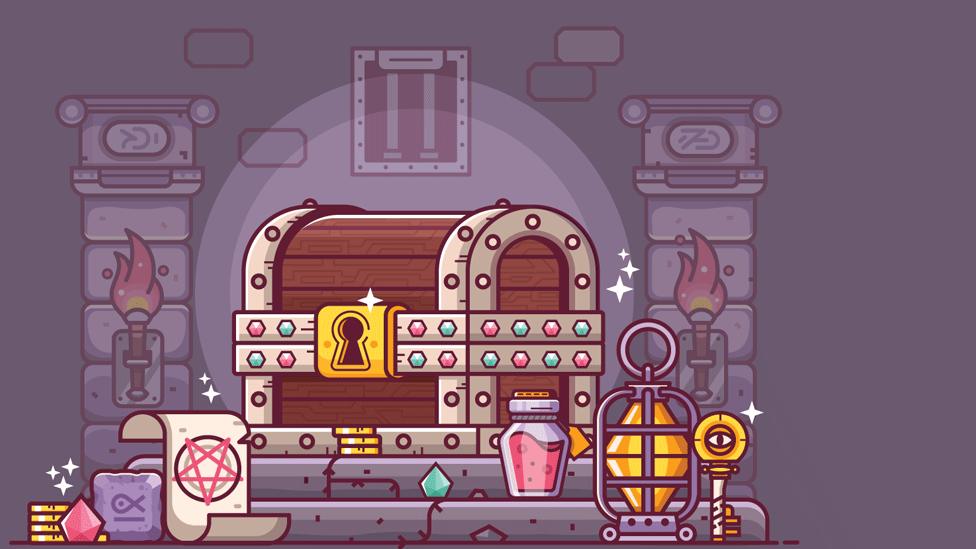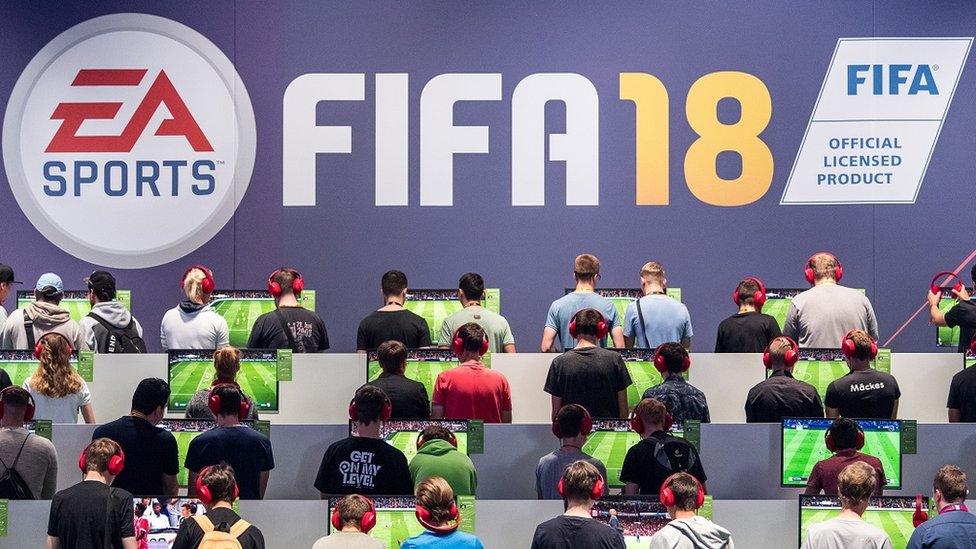Loot boxes should be banned, says US senator
- Published
- comments

Loot boxes offer a variety of rewards that can improve game-play
A US senator has proposed a ban on loot boxes - spending within video games - saying they are "preying on user addiction" and exploiting children.
Last month, the government of Belgium said loot boxes were in violation of its gambling laws. Sweden is also investigating them.
And the Chinese government has restricted the number of loot boxes players can open each day.
The gaming industry said it had tools to limit in-game spending.
Candy Crush

Republican senator Josh Hawley said of his proposed Protecting Children from Abusive Games Bill: "When a game is designed for kids, game developers shouldn't be allowed to monetise addiction.
"And when kids play games designed for adults, they should be walled off from compulsive micro-transactions.
"Game developers who knowingly exploit children should face legal consequences."
Before the bill can be approved, it faces a long process, heading through a series of committees and facing scrutiny by the House or Representatives and Senate, before being signed off by the president.
Mr Hawley singled out Candy Crush, a free game that allows players to purchase a $149 (£114) bundle that includes 1,000 units of its in-game currency.
In a statement, the Entertainment Software Association (ESA) said that numerous countries including Ireland, Germany, Denmark, Australia and the UK had determined that loot boxes were not akin to gambling.
"We look forward to sharing with the senator the tools and information the industry already provides that keeps the control of in-game spending in parents' hands," it said.
"Parents already have the ability to limit or prohibit in-game purchases with easy-to-use parental controls."
The ESA has previously said that efforts to regulate the gaming industry threatened its freedom to innovate and test new business models.
Hidden treasure?
But evidence is mounting that there could be a link between gambling and the use of loot boxes.
Loot boxes began appearing in video games in the mid-2000s and have grown in popularity since.
They are frequently used as a way of monetising free games, with some having associated online marketplaces where players can trade or sell loot box items.
In some cases, players earn them as rewards for game-play but often they are encouraged to buy them using real or virtual currency.
They contain items of use for further game-play, such as weapons, although some are purely cosmetic.
Typically, players will not know what is inside a loot box until it is opened.
In a paper published, external in peer-reviewed journal Addictive Behaviours, scientists at the University of British Columbia's centre of gambling research claim to have identified a link between problematic gambling behaviour and loot boxes.
Researchers interviewed 144 adult gamers and 113 undergraduates about their use of loot boxes.
Almost 90% said that they had opened a loot box in a video game, with more than half spending money on them and about a third reporting to have sold a loot box item.
Most respondents in both groups said they thought loot boxes were a form of gambling.
"Our findings are consistent with voiced concerns that loot boxes overlap with gambling and support the need for regulators to consider gambling-like mechanisms within video games," said study author Gabriel Brooks.
The gaming industry argues that loot boxes are not gambling because games do not offer players the option of cashing in their winnings and getting real-world money.
- Published26 April 2018

- Published22 November 2018

- Published18 December 2013
